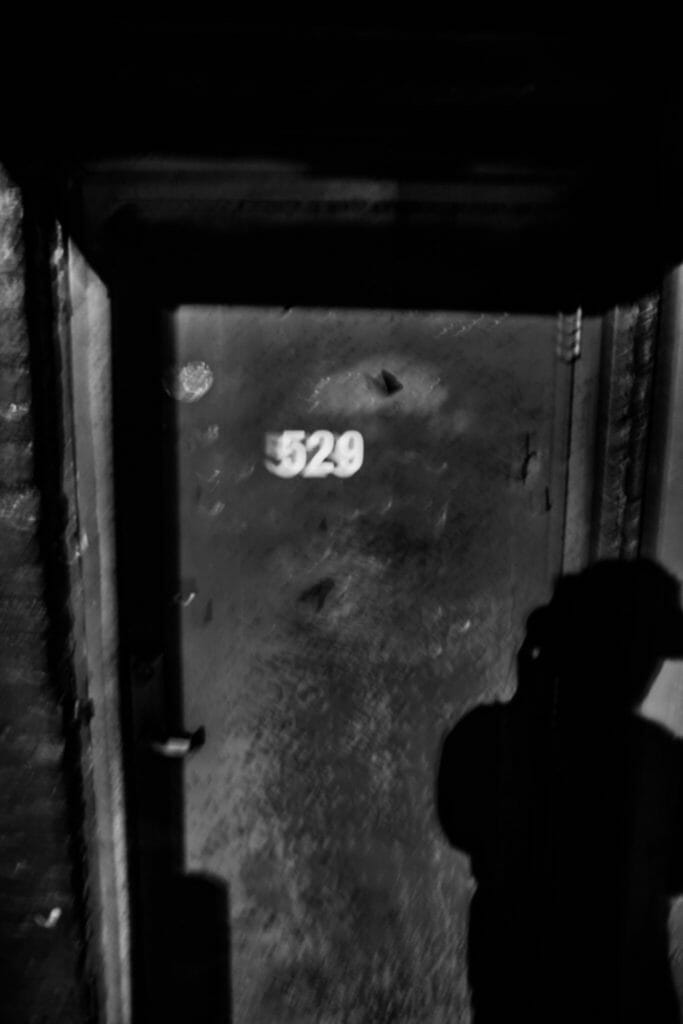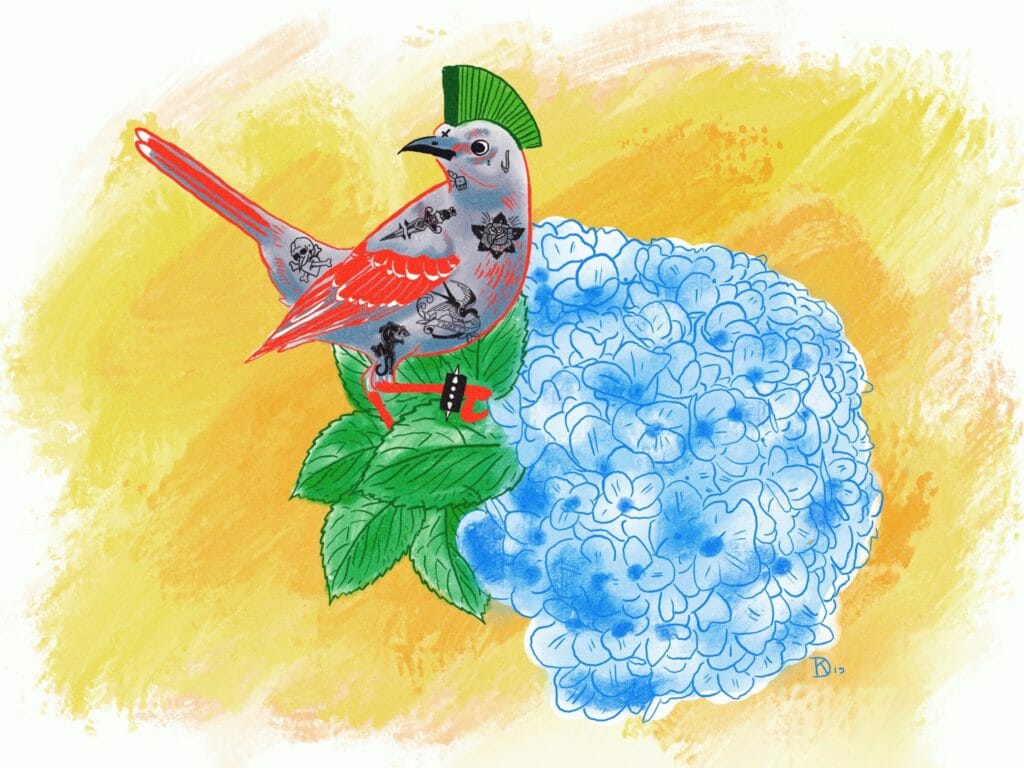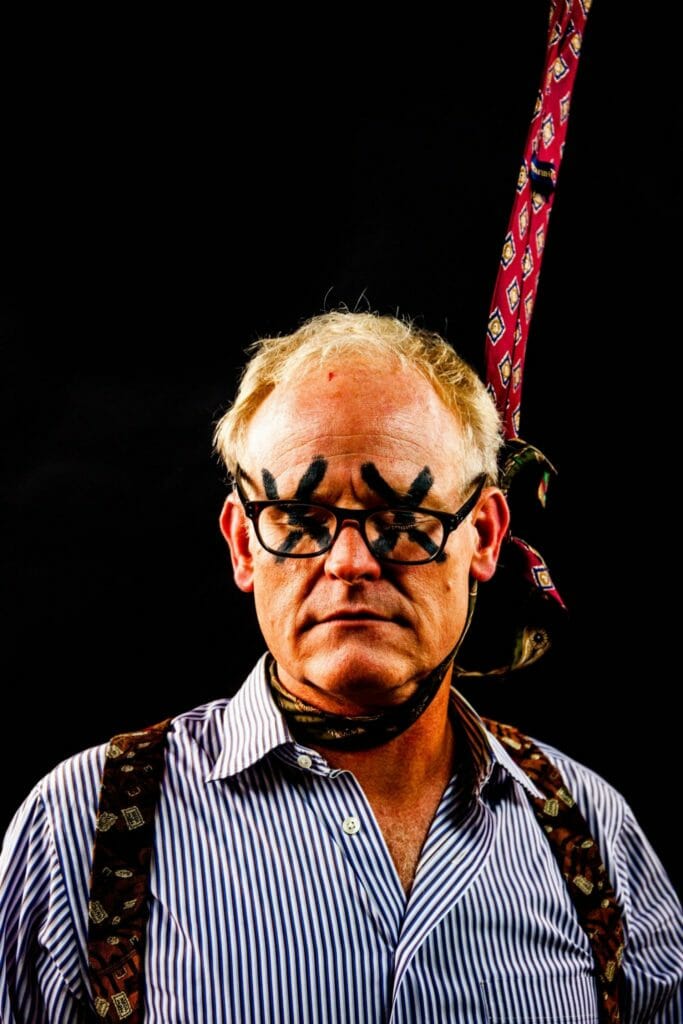But it’s fine—you’re already here
One morning in fall 2018, I woke up plagued by dissolution and with an existential hangover. I’d spent the previous night chainsmoking, asking the big, ultimately unimportant questions of why any of us are here and what’s the point. Earlier that year, at my request to start looking into prescription medications, my therapist told me I wasn’t experiencing depression; I was just sad. This simple diagnosis felt unfair and ultimately a major bummer, as my means for escape were dwindling. I carried on as I was: sober, disgruntled, and feeling broken.
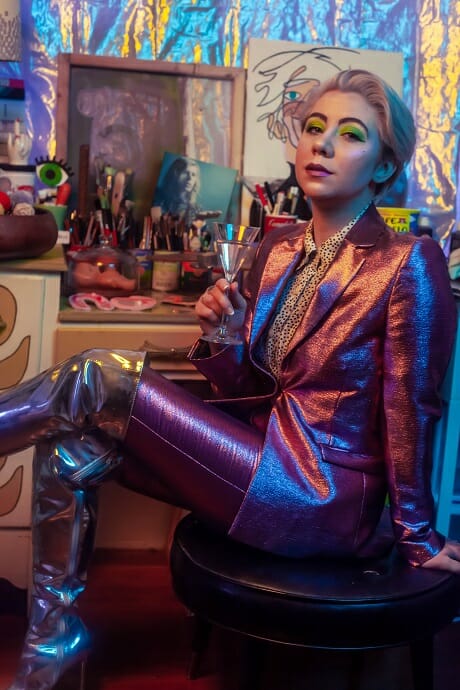
That morning, I received a text from a friend saying they were worried about their drinking because they couldn’t stop. Cocaine seemed like the next right thing to do, they said. That made sense to me, even though I hadn’t had a drink or drug in nearly three years. I asked if they’d be willing to meet me later that night and they said yes.
We met at a dingy family pizza joint near its closing time. My friend was already there with a beer and a slice of pizza, picking at the wilted mushrooms and green peppers between bites and intermittently wiping their hands all over the glass’s condensation as if to clean them. I suspected their head was full of the same questions mine had been for weeks, meeting all the criteria of a full-blown existential crisis. I sat down and they looked up slowly, so as to not disrupt the buzz.
They asked if I was mad. I wasn’t. They asked if I was disappointed. I wasn’t. They didn’t ask me if I understood, but I wish they had. Because I totally did. Even though I was coming up on three years sober, my issues with addiction were manifesting in other ways and I was being eaten alive by an eating disorder. (This is not uncommon.)
Even though I was coming up on three years sober, my issues with addiction were manifesting in other ways.
What I knew—and what my friend probably couldn’t see in that moment—was that absolutely nothing was wrong with them or what they were experiencing. There was nothing stupid or morally corrupt about this situation at all. It almost had nothing to do with them. It’s just that alcoholism is fucking real and if you have it, you’re in for a life of living with it, drinking or not.
And alcoholic or not, I knew that what was happening with them was also just extremely human. I saw my friend running—which is what we are all doing most of the time. Through our phones, through social media, through our streaming services, through each other. I think we all want to be saved. Invariably, we hit this sobering truth over and over: no one is coming to save us. What we do with this realization falls on us.
I couldn’t talk my friend into sobering up even if I wanted to try, so I figured the best thing was to simply be there and listen. They looked up from their pizza again, eyes glazed over, and asked, “Why do humans like to self-destruct so much?” I didn’t have an answer for them, but it has since been in my queue of big, unimportant questions.
Is self-destruction simply a default re self-loathing? Or is it some sort of inner power struggle? Mix self-loathing in with a little deadbeat nihilism and you’re most likely left realizing that we are ultimately doomed, anyway. If we\’re going down, shouldn’t we at least get a say in the matter and decide how we do that? Can we at least have that little sensation of power in times like these, when it feels like there’s so little to be had?
I’ll step down from the speculation committee and admit that I don’t know why. I will say that while my friend and I are both alcoholic-addicts and share this tendency, I venture to think this isn’t exclusive to alcoholics and addicts, either. Every day, people different and alike are digging themselves into more debt, pumping their bodies full of junk food, hardly feeding their bodies at all, smoking cigarettes, sabotaging their relationships, looking at exes’ profiles on social media, using sex as a weapon, dumping gasoline all over their beautiful lives and beautiful homes and throwing in a lit match (metaphorically and for some, literally), and then wondering, “How did I get here?” It seems we all go down this route and stay in various degrees of it forever. And while the degree to which act upon them may lessen over time, the urges are always there—even if we’re putting in the work to be different. Why the fuck is that?
Again, I don’t know, but what I do know is this: if we don’t accept ourselves as we are right now, these urges and the worst parts of us will continue to creep up, haunt us, and keep us in this vicious cycle.
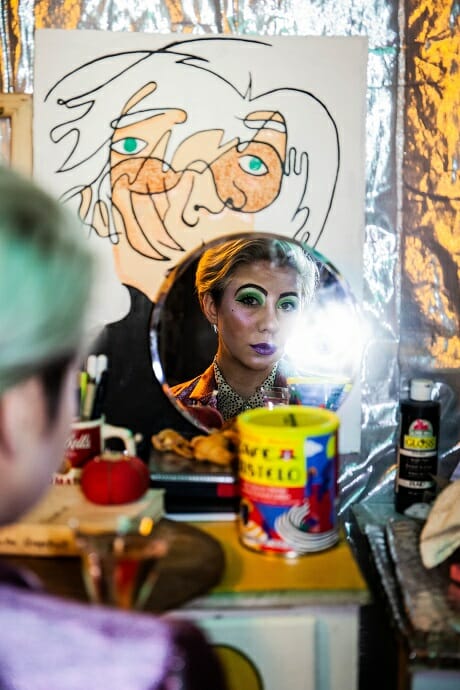
And it feels especially vicious today. We’re living in a time not much unlike the Vietnam War era, where cultural and external distrust is so strong that we have almost no resolution left but to turn inward. Except now, with all of our technological advancements, we have so many places to turn to avoid ourselves. Because who wants to look inside themselves if they’re going to hate what they find? Instead, we continuously seek to work our shit out (poorly) elsewhere. Going in and out of toxic relationships, comparing ourselves to others on social media (which places all users on the addiction spectrum and banks on the drive for instant validation), returning to “old behaviors” (I saw a meme once that said, “It’s not an old behavior if you’re still doin’ it”), and chasing our own tails—most times without even realizing it. All just to avoid ourselves and change the way we feel.
But in this mode of operation—purely insatiable, mouths dry, hearts racing with impending anxiety, our heads so concerned with a reality that doesn’t actually exist—nothing is good enough, never will be good enough, and we are not good enough. Then we find ourselves baffled and dimwitted when confronted with our generalized anxiety disorders and depression as we whip out our big fancy phone screens Googling “WHYYYYY?” and “how come,” diagnosing ourselves and returning right back to the tools perpetuating the same old bullshit.
Why aren’t these things working? This stuff should work, right? Seems like it’s working for everyone else. The world keeps fucking turning and I’m still here, unfixed. What the hell is wrong with me? There must be something intrinsically wrong with me. Fuck it, then.
No. It’s not about us. It\’s the paradigms we’ve been living in. It’s all based in delusion. Life isn’t actually about pushing, pushing, pushing. None of this shit—recovery, self-help, self-improvement, therapy, what have you—works without a baseline of self-acceptance, knowing that we will always be us and that is fucking okay.
It’s no surprise that millennials are the loneliest generation. To quell this loneliness—which we are most likely to deem as a by-product of our being less than this, that, or the other, rather than to blame the system we are in—we stack ourselves with books, YouTube videos, and Netflix specials full of guarantees and affirmations that if we do x, y, z, then things will be different. If only we could just think differently, feel differently, live differently, be differently, then BOOM! There will come all those doses of self-esteem I need to survive in this world. That’s what I’ve been owed and deprived of all along.
Except, self-esteem was never not there. Because we all have egos. With these egos come idealized versions of ourselves. When things disrupt that image, we go through something called a “disturbance” that an entire self-help movement mislabeled as indicators of “low self-esteem.” This isn’t to say that nothing is wrong and bad shit isn’t happening; this is simply to say that low self-esteem is an inaccurate diagnosis.
You’re already valid and there’s proof of it in you walking, talking, breathing, reading this.
Therefore, “fixing” our self-esteem isn’t a solution. In fact, the solution becomes the very issue. Because the more things keep happening that I don’t agree with and I keep doing everything in my humanly power to fight against it and level myself up, the greater the struggle becomes. And if you’re anything like me (maybe you’re not and this article is just dribble), then by the time we get caught up in these fiascos and continue to impair ourselves with posh, poser embellishments and faulty dependencies on other people, there’s not much of ourselves left. We’re just mish-mashes of various podcasts, affirmations, and memes we see on the internet.
So when the time comes to call upon ourselves to “save ourselves,” as the self-esteem movement urges us to do, how do we do that? How do you follow through when there’s nothing real left to tap into?
The answer is, we don’t follow through. And then there is just a lot of fucking around and waiting around. Waiting around for someone or something to come save us. For a lot of us that salvation comes in the form of validation. Sometimes it’s not even about being saved, it’s about being redeemed. Often, we enter relationships with people solely for that validation, just to use and suck them dry, only to feel plagued by them… because ultimately, they’ll never be able to give us what we want. So we start over and jump from person to person, thing to thing. It’s like it never ends.
But here is the thing that might set us free: no one needs to be more validated than they already are, or redeemed for anything. The validation is inherent in our existence. You’re already valid and there’s proof of it in you walking, talking, breathing, reading this—so why are we fighting so hard to prove ourselves day after day, whether that be with an Instagram post, a Tweet, or Facebook comment battle? In spaces that aren’t even physically real, spaces that just put everyone all up in each other’s faces or on pedestals and yet leave us feeling so far away from one another?
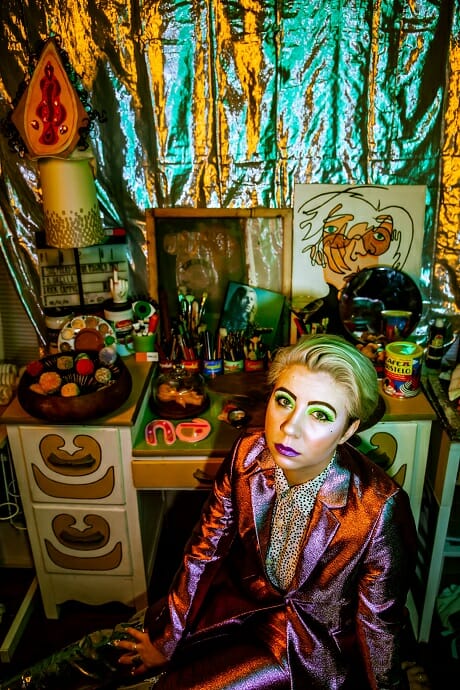
I think I was about 13 when I started noticing those annoying little blurbs, stickers, and mantras that were branded a certain way that I was never really drawn to. Slogans in cursive or Comic Sans screaming, “You got this, girl!” (sidenote: it’s okay to say you don’t got this) and “I’m gonna be so good today that yesterday is gonna be jealous!” Maybe this is why as an adolescent I always turned to punk rock and the self-destruction I assumed came along with it (turns out I had punk all wrong, too). This was in 2002 and the same year the New York Times published Lauren Slater’s essay “The Trouble With Self-Esteem,” in which she argues that self-esteem is a construct and our entire culture has become inflated by “two quite separate notions: self, and worth.” Apparently, there’s actually no evidence that low self-esteem is harmful; and the self-help language that insists it is has inadvertently misdirected a culture that should really be aimed at self-appraisal (the process of which is: see, assess, edit, praise, and prune).
I wish I read that shit when I was 13.
Can you imagine what would happen if we did away with our warped ideas of self-esteem completely? If we just did away with this narrative that we have to lift ourselves by our bootstraps and keep pushing, pushing, and pushing? Or since it’s unlikely we can reshape an entire culture overnight, what if we changed some bits of the narratives within it, just as a starting point? If there’s going to be a whole market capitalizing on people’s self-esteem or lack thereof, maybe it should be more accurate and instead sport slogans like, “You better accept yourself before you wreck yourself!” Equally as cheesy, but nonetheless more honest. And it would save us a bunch of unnecessary work and self-pity.
Acceptance of ourselves calls an end to the bullshit struggle. It’s a reset. It’s an important step that most of these entrepreneurial and capitalistic marketing schemes seem to miss. Accept yourself first, then get to work.
In the words of Carl Rogers, “The minute I accept myself, then I change.” This is important, because no one is coming to save you or fix you. Not even that self-help book that promises to magically raise your self-esteem for $18.99. But we don’t need to be saved. We don’t need to be fixed. Not by our parents, not by religion, not by our followers, not by our friends, not by our partners. My friend didn’t need me to try and save them or fix anything that night in the pizza shop. Acceptance isn’t only the answer; it’s the beginning of the way out.
That friend from the pizza shop is sober now, if anyone was wondering.

